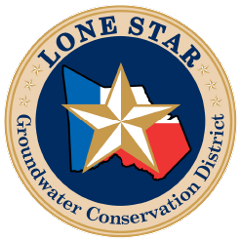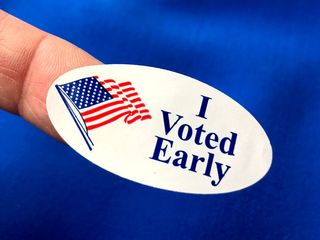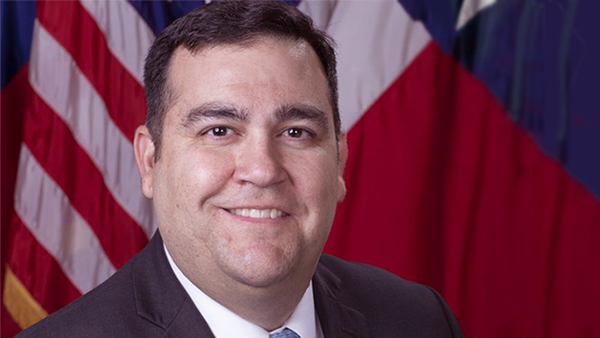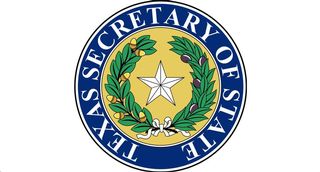- Sections :
- Crime & Public Safety
- Restaurants & Food
- Sports
- More
Categories
Lone Star GCD Appeals the Executive Administrator's Decision Not to Approve Its Management Plan

MONTGOMERY COUNTY, TX - Lone Star Groundwater Conservation District (the 'District') adopted a new management plan on March 12, 2019. The District previously regulated groundwater withdrawals through mandatory reductions of certain large volume users until those rules were deemed statutorily invalid by a district court in Montgomery County, Texas. In its new management plan, the District committed to adopt new rules to regulate groundwater production through well spacing and production limits, among other methods, as authorized in section 36.116 of Chapter 36 of the Texas Water Code ('Chapter 36'). Those new rules are not yet in place. The objective and performance standards in the District's new management plan remained largely unchanged from previously approved plans. The District also committed to making appropriate adjustments to allowable and permitted production, as warranted, to achieve aquifer management standards over the long-term.
In its March 2019 plan, the District explained the limited applicability of the 2016 desired future conditions (DFCs) and corresponding modeled available groundwater (MAGs) because: the 2016 DFCs were successfully petitioned; the District had entered a final order consistent with the administrative law judge's proposal for decision finding the DFCs no longer reasonable; and GMA 14 had not yet revised the DFCs applicable to the District in light of the petitions and order. Even though the 2016 DFCs were found to be no longer reasonable, Chapter 36 and Texas Water Development Board ('TWDB') rules require the District to include the most recent DFC and MAG information with an explanation as to their applicability. TWDB previously instructed the District to use the 2016 information, and TWDB approved use of the 2016 information in 'pre-review' comments in September 2018.
In May 2019, TWDB's Executive Administrator determined the District's management plan was not administratively complete because TWDB had determined the 2010 DFCs were the applicable DFCs. TWDB encouraged the District to take advantage of its pre-review process. The District submitted a second draft plan with the 2010 information. The District raised several questions and concerns it had with including the 2010 information. Specifically, in its second pre-review submission, the District expressed the following concerns: (1) the 2010 DFCs were superseded and replaced with the 2016 DFCs upon adoption, and there is no express authorization in the statute and rules for TWDB to reinstate lapsed DFCs; (2) the 2010 DFCs were adopted under an old statutory scheme intentionally amended by the Legislature to rectify scientific and due process concerns; (3) the 2010 DFCs were derived using an almost identical methodology as, and are substantially similar to, the petitioned 2016 DFCs declared no longer reasonable; (4) the assumed total pumping used to create both the 2010 and 2016 DFCs was essentially identical and based on void and unenforceable rules; and (5) the District was concerned that incorporating the 2010 Information could lead to litigation by any affected person under section 36.251 and create compliance issues with the orders and agreements resulting from the 2016 DFC petition and reduction rule litigation.
In response to the District's second pre-review submission, TWDB issued a recommendation report with required changes that made it clear TWDB intended to reinstate the 2010 DFCs and require the District to manage to them until new DFCs were adopted. Realizing the District could not comply with TWDB's request for the previously stated technical and legal reasons, the District notified TWDB of its intent to appeal the Executive Administrator's decision.
On August 9, 2019, the District filed with TWDB the District's 'Points of Appeal' addressing each of the Executive Administrator's reasons for denial of approval of the plan. In this appeal, the District challenges TWDB's authority to reinstate lapsed DFCs arguing the decision exceeds TWDB's limited authority under Chapter 36 and results in prohibited conduct. The District further argues that TWDB's decision yields inconsistent scientific, legal and policy results rendering the decision unreasonable and reversible.
To view the 'Points of Appeal' in its entirety, please click here.
In its March 2019 plan, the District explained the limited applicability of the 2016 desired future conditions (DFCs) and corresponding modeled available groundwater (MAGs) because: the 2016 DFCs were successfully petitioned; the District had entered a final order consistent with the administrative law judge's proposal for decision finding the DFCs no longer reasonable; and GMA 14 had not yet revised the DFCs applicable to the District in light of the petitions and order. Even though the 2016 DFCs were found to be no longer reasonable, Chapter 36 and Texas Water Development Board ('TWDB') rules require the District to include the most recent DFC and MAG information with an explanation as to their applicability. TWDB previously instructed the District to use the 2016 information, and TWDB approved use of the 2016 information in 'pre-review' comments in September 2018.
In May 2019, TWDB's Executive Administrator determined the District's management plan was not administratively complete because TWDB had determined the 2010 DFCs were the applicable DFCs. TWDB encouraged the District to take advantage of its pre-review process. The District submitted a second draft plan with the 2010 information. The District raised several questions and concerns it had with including the 2010 information. Specifically, in its second pre-review submission, the District expressed the following concerns: (1) the 2010 DFCs were superseded and replaced with the 2016 DFCs upon adoption, and there is no express authorization in the statute and rules for TWDB to reinstate lapsed DFCs; (2) the 2010 DFCs were adopted under an old statutory scheme intentionally amended by the Legislature to rectify scientific and due process concerns; (3) the 2010 DFCs were derived using an almost identical methodology as, and are substantially similar to, the petitioned 2016 DFCs declared no longer reasonable; (4) the assumed total pumping used to create both the 2010 and 2016 DFCs was essentially identical and based on void and unenforceable rules; and (5) the District was concerned that incorporating the 2010 Information could lead to litigation by any affected person under section 36.251 and create compliance issues with the orders and agreements resulting from the 2016 DFC petition and reduction rule litigation.
In response to the District's second pre-review submission, TWDB issued a recommendation report with required changes that made it clear TWDB intended to reinstate the 2010 DFCs and require the District to manage to them until new DFCs were adopted. Realizing the District could not comply with TWDB's request for the previously stated technical and legal reasons, the District notified TWDB of its intent to appeal the Executive Administrator's decision.
On August 9, 2019, the District filed with TWDB the District's 'Points of Appeal' addressing each of the Executive Administrator's reasons for denial of approval of the plan. In this appeal, the District challenges TWDB's authority to reinstate lapsed DFCs arguing the decision exceeds TWDB's limited authority under Chapter 36 and results in prohibited conduct. The District further argues that TWDB's decision yields inconsistent scientific, legal and policy results rendering the decision unreasonable and reversible.
To view the 'Points of Appeal' in its entirety, please click here.
Comments •

















